SWEET & HOT
Spicy sisterhood stirs gourmet halaal in Durbs
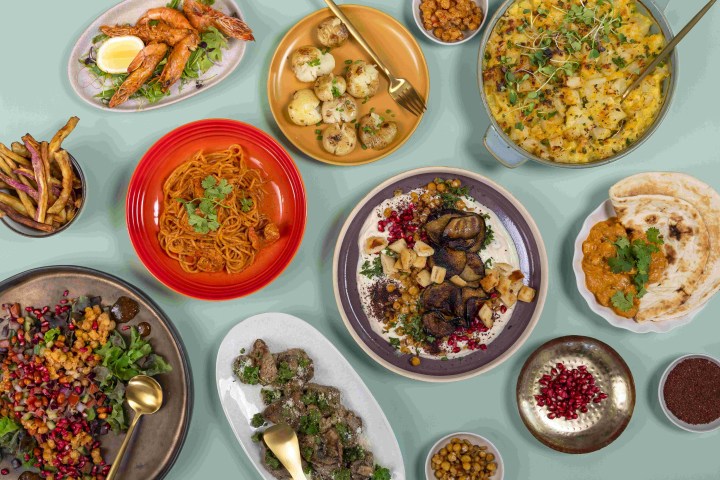
Creativity, passion and their Muslim faith inspire chef sisters Zainab and Faatimah Paruk. Their success is flavoured by Durban’s diversity.
An unlikely trio we were. Paul the Catholic Kenyan. Mohi the Muslim Libyan. Yours truly the Caucasian Zen bunny. How I thought of us, the contrasts in what – and how – we cooked being the memory-trigger that still makes me smile fondly, looking back to when we shared a flat, shared the kitchen, not too long ago.
Paul was the most diligent cook. His work often had him home late. But never too late, it seemed, to head into the kitchen to boil water in a pot, pour in his favourite Nyala super maize meal (I messaged him in San Francisco, where he is doing post-doc research, to check on the brand) and beat it with his wooden spoon into ugali, the Kenyan version of a crumbly mieliepap. This he would eat with whatever meat was being furiously cooked to near oblivion, the stove always on max-high. Sometimes on a Saturday he would head into town for his favourite tilapia fish; memories of his Lake Victoria childhood. Then I’d see him at the back yard tap, scraping off scales, cutting, washing the little fishies, then dangling them to drip-dry from kitchen forks stuck into the under-building gratings.
When Mohi, a doctor, called from Cape Town wanting the room we’d advertised, I explained I wasn’t Muslim, presuming he’d made a mistake. He asked if he could send his friend, Mohamed, to view the space.
“What about the kitchen and cooking?” I asked, when Mohamed said our place would work for his friend.
No problem, he assured me.
So then there was Mohi who cooked on Sundays, always using my big blue enamel pot. On a limited budget, studying and working long hospital shifts and careful about what he ate – affably declining anything I invited him to share – he cooked pasta. Libya’s colonial Italian influence, he said. He added canned tomato and that did for him all week.
Cultural. Religious. Idiosyncratic. Food laws, rules and habits. What I’ve been thinking about these past weeks since connecting with the Chilli Chocolate Chefs, deliciously delightful ebullient sisters Zainab and Faatimah Paruk, who over the past 10 years – first from an aunt’s kitchen then, the last three, from their corporate kitchen, office and pretty little pink shop in an historic building in Musgrave – have made an indelible mark on Durban’s diverse culinary landscape with their certified fully halaal catering company.
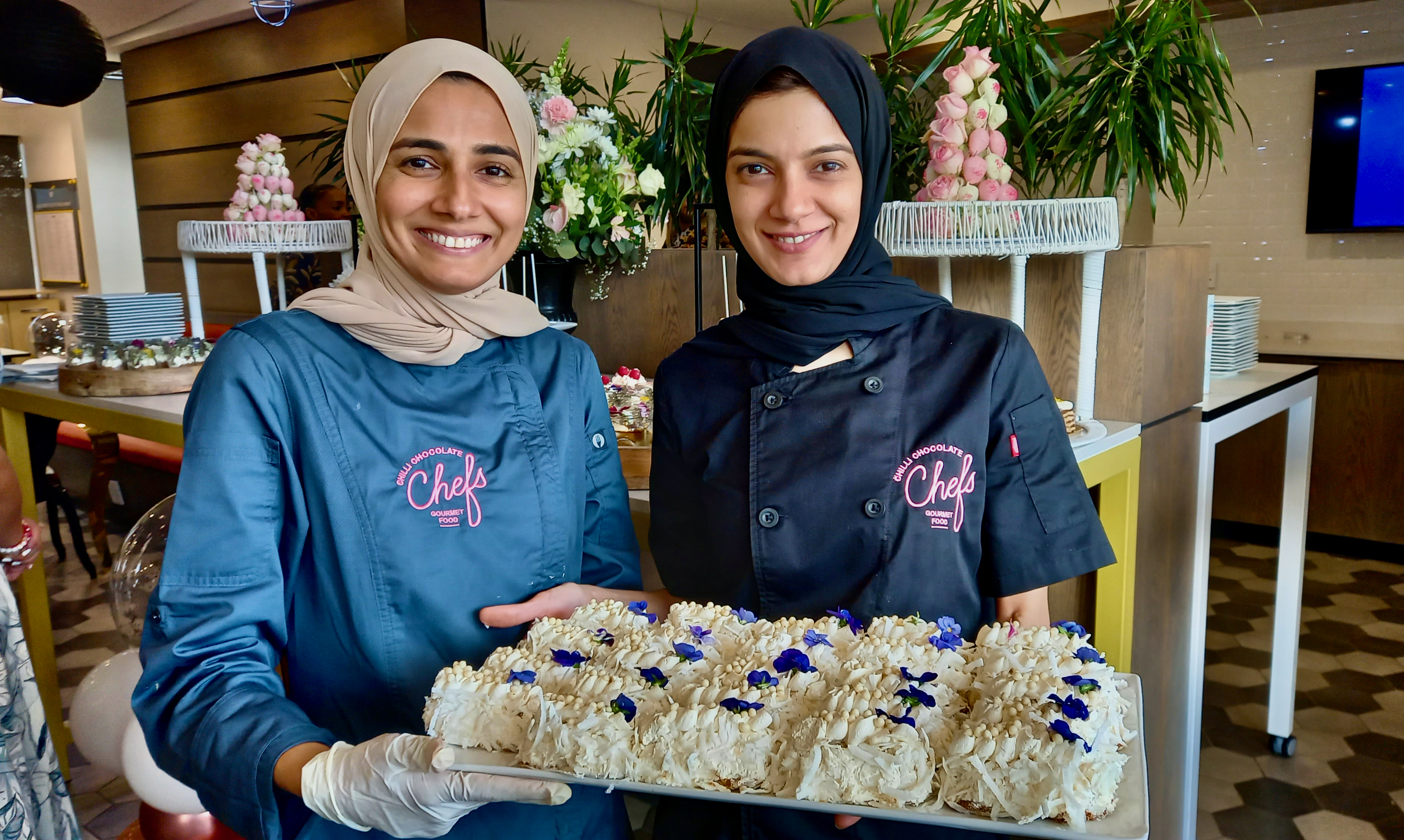
Sisters and business partners Zainab, left, and Faatimah Paruk set up the dessert table at a corporate event. (Photo: Wanda Hennig)
So think on this sampling of dishes for starters. Coconut-infused chicken khowse, a Burmese-influenced Indian dish; chicken chow mein; steak stir fry with julienne carrots served with pita bread; Portuguese spatchcock chicken with naan; crispy crumbed chicken schnitzel; warm creamy and comforting potato and leek soup; fresh juicy lightly grilled masala fish; lamb curry; white chocolate-chunk brownies; crispy kunafa (shredded strands of phyllo dough) cheesecake.
No stereotypes here. “Fusion contemporary,” is how Faatimah describes their cooking style, menu options, and what is in their just-out cookbook, Bringing It Home, recipes from which they occasionally “go live” and demo, part of an oil company barter deal, shared with their wide Instagram fan base.
“There may be subtle hints of our Indian roots,” Faatimah says when I drive with her to deliver a halaal birthday cake order to Chef’s Table, Umhlanga. But with Italian, Mediterranean, Middle Eastern and many other flavours, textures and influences. Why their customers are a cross-the-board mix.
The food showcases the talents, passion for cooking and creativity of the sisters. Their success, business acumen and commitment. Capacity to juggle and multitask too, I note when I spend a morning with Zainab, joined at strategic times by Faatimah, when they’re setting up and overseeing a corporate event at an Umhlanga business park location.
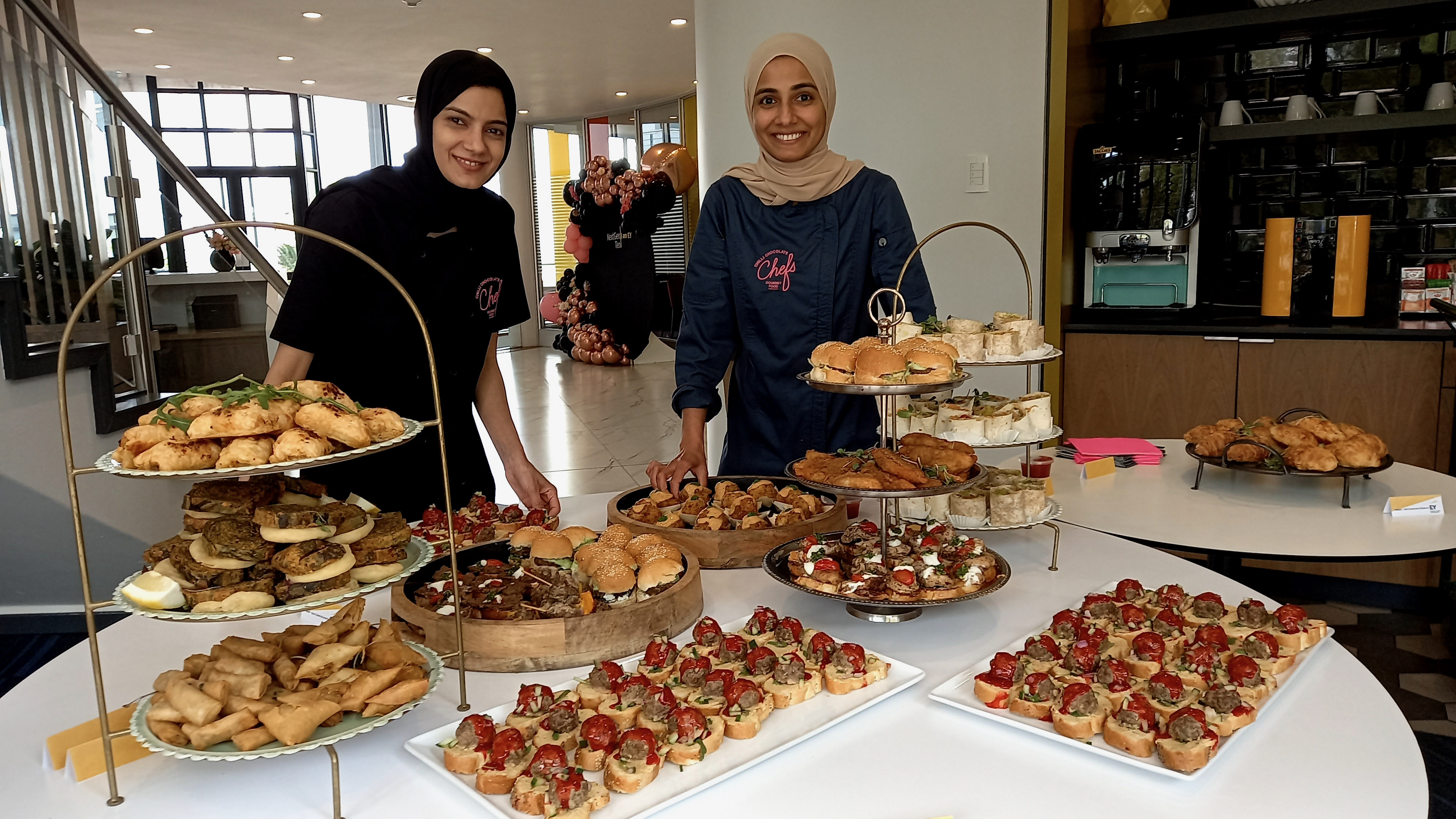
Sisters and business partners Zainab, left, and Faatimah Paruk set up the dessert table at a corporate event. (Photo: Wanda Hennig)
Corporate catering is their speciality. And also weddings, these usually at weekends. Although during Covid, with corporate events and weddings cancelled, they kept the business going and staff employed by adding a retail side. Meals you can order, get notified about via WhatsApp, pick up, have delivered, eat at home.
Zainab is a graduate of the erstwhile Christina Martin School of Food and Wine, in its heyday the top cooking school in Africa and at one point ranked one of the top four in the world. She made it into the school the final year the late legendary Christina Martin was still at the helm.
Six months into the course, the school moved from Florida Road to Westville and Martin’s daughter, Cape Winelands-based chef Michelle Barry, took over.
Faatimah is a graduate of Fusion Cooking School, Westville campus, under chefs Shaun Smith and Caryn England. She interned afterwards at Sprigs, Makaranga Lodge and a host of other places.
But now, time to backtrack. To give the back story. The story of how the two young women, initially encouraged by their mom to take cooking lessons so that they could stay home and be good wives, at some point, took flight: well, it’s like the genie jumped out of the lamp and took off on gossamer wings.
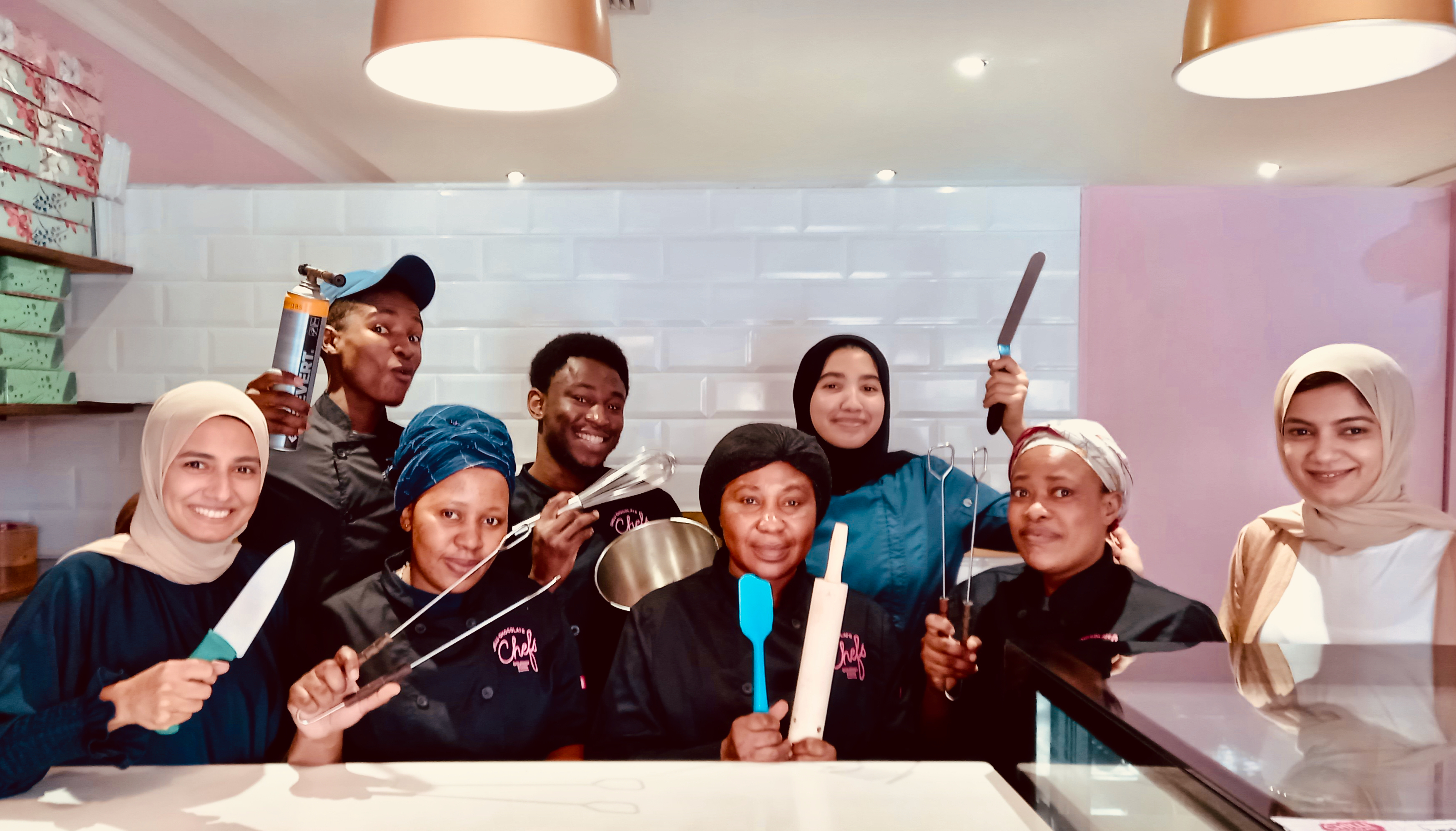
Zainab, left, and Faatimah Paruk, right, with kitchen team members. (Photo: Wanda Hennig)
Zainab and Faatimah will tell you, as they did me when I met them at their Musgrave catering business HQ, which has a buzzing kitchen and staff who, really and truly, look energised and happy, that they were brought up in Durban in a strict Muslim family.
“We both left (regular) school in grade five and went to Islamic school to pursue Islamic studies,” says Zainab, older by 18 months.
“There’s no grade at Islamic school. You study there for a period of about six years doing the Alimah course, which makes you like a professor of Islamic studies. And my sister and I, we both did hafiza, which is a lady who memorises the Quran; a hafiz is a male who memorises the Quran.
“That’s very important in our religion. Generally males do it, not so many females. The females that do it, it takes a lot more time because for six or seven days each month, when you have your period, you’re not allowed to touch the Quran, to read it.
“Those gaps, they hold you back. When you’re memorising, you have to keep repeating and with those gaps you sometimes forget and have to go back and relearn.
“To be totally honest,” Zainab confides, “one of the reasons I started was because I didn’t have a very good memory and I thought learning the Quran would improve it.” Which, she says, it did.
So could she recite it for me now? I ask. She nods.
Adds: “So you know at Ramadan we fast for 30 days, at night after we break our fast we have a prayer that happens every night. There’s 30 parts in the Quran so you read one part every night so you finish the Quran in 30 days.”
As women, they don’t pray in the direction of Mecca, do they? – is a question I hear my curiosity ask.
“We do, we do,” Zainab affirms, laughing.
“Every day, five times, we pray.”
I hadn’t seen her praying. Did I miss it?
“So the morning prayer is at 5.30am. The second prayer starts at 12, when the sun is at its highest peak, and we can do that prayer any time till about 3.30pm. Then the prayer after that starts from about quarter to four till around 5.30pm, so you have window periods.
She won’t suddenly disappear on me, she promises.
“I don’t have my prayer mat here,” she explains. “I don’t know if you remember where the pastry kitchen is? Where the big ovens are? There’s a little area at the side where we keep our prayer mat. We also have a bourka, which is like a long black garb that we wear so that our hands and feet are covered properly when we pray there.”
Every prayer, she says, is about five minutes. The last is around 8pm. “Praying five times a day just becomes part of your day. You don’t forget it. You know that’s what you need to do. So before we pray, we wash our hands. We wash our face. We wash our arms. We wash our feet. That is like the four fundamentals you must wash before you pray. Like you freshen up and then you pray quickly. Then get back to work.
“And the nice thing is, it gives you like five minutes in your day when you just stop. It gives you time to reflect. And then you’re back.”
Her comment has me remembering working in the kitchen at the San Francisco Zen Centre. Every so often the head of the kitchen, the tenzo, would tinkle a small bell. We’d stop. Breathe. In that case no prayer. Just a reconnect with the present. A moment to reflect. Then on with the business of the meal.
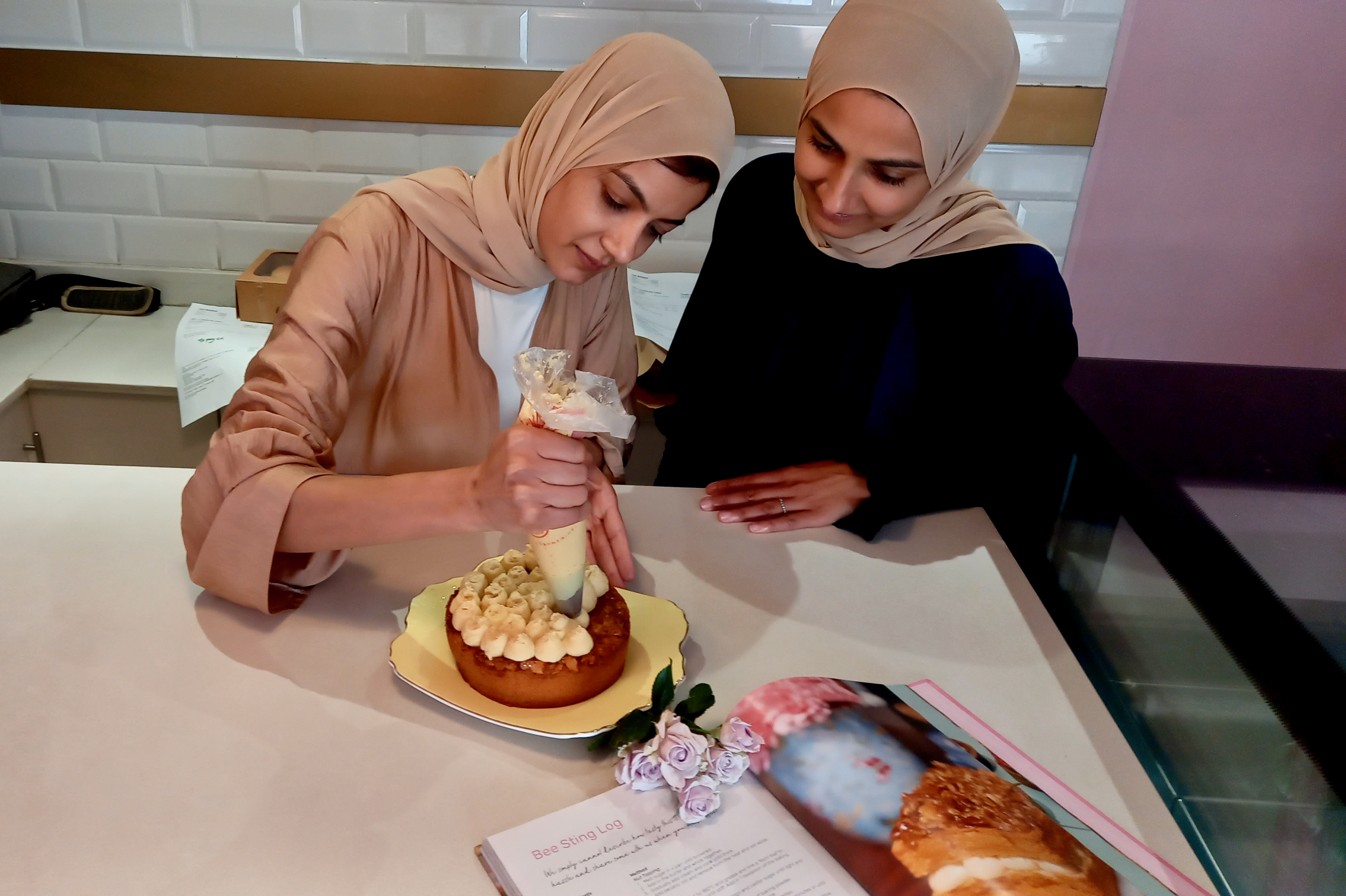
Faatimah Paruk puts the finishing touches to a bee sting cake, which features in their recipe book. (Photo: Wanda Hennig)
This story warms my vintage women’s lib heart.
While they were at Islamic school, every holiday their mom sent them to random cooking and baking classes. “Absolutely, so we’d be able to cook for our husbands and be good wives and moms,” Zainab, who is married and whose husband works on the business side in the business, reaffirms, her answers always direct, given with humour, fully engaged.
“We would learn things and then on Fridays and Saturdays at our granny’s house, the entire family would get together and we’d share our versions of dishes we’d learned. They would compliment us. And I’d say that’s where the love of cooking, preparing and sharing food, started.
“We had become Islamic educators, teaching little kids about the Quran. But when we decided we wanted to study, to enrol at chef school, we couldn’t because we didn’t have our matric.”
They were 20/21 when they funded themselves, from savings from teaching, and signed on to get that needed matric. Went to college on Saturday mornings. Did their assignments between teaching commitments during the week. And at the end of the year, both got their exemptions. “We did quite well. I got five As. Faatimah’s a lot brighter than me. She got six.”
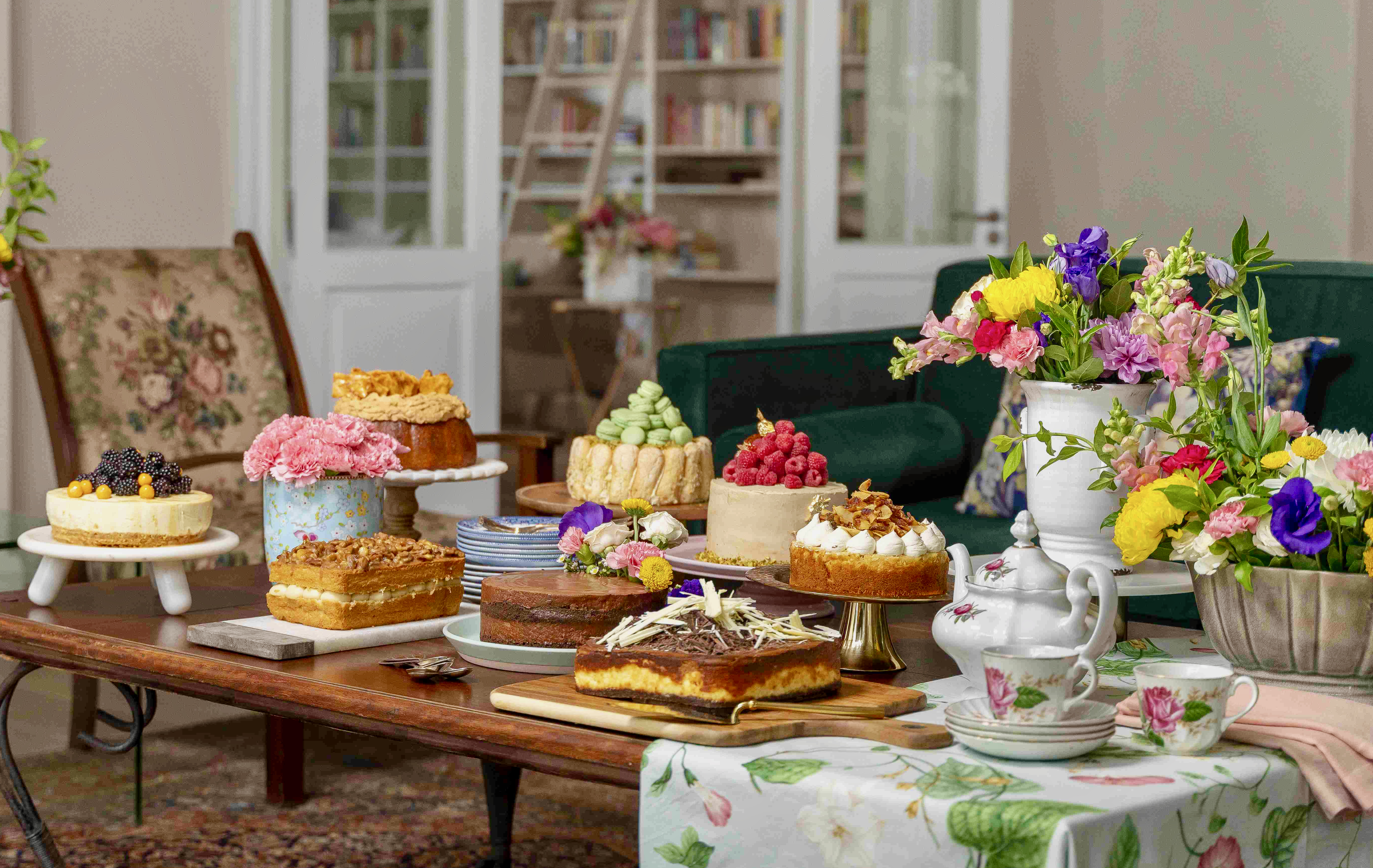
A spread of the intrepid sisters’ cakes and desserts. (Photo: Timmy Baker)
They had already decided on specific chef schools. “Not the same one. We’d have killed each other,” each of them tells me gleefully, separately.
But private chef schools, those they had chosen, were costly and they didn’t have the resources. “We come from a humble family. My father runs a stationery store. We always had what we needed but nothing lavish.”
Besides, their mom disapproved of the idea. “She told my father he wasn’t allowed to have anything to do with helping us. I think she was just scared. Understandably. She’d kept us on the right track. Now I wanted to go to the Christina Martin School of Food – and Wine. I think she imagined I’d be drinking it.”
But then their father’s father, “our grandfather. He felt sorry for us, I think. He offered to cover the costs for us. And it was a good thing because when his daughter’s daughters wanted to study, they didn’t think they’d be able to. But because he’d sponsored us, we opened the doors for them.”
At chef’s school and numerous non-halaal kitchens they subsequently worked in gaining experience, and now on catering gigs, “people understand when you explain halaal to them – about the no pork, the no alcohol – and there’s always a way to work around it so we and our food are not directly involved”.
While notching up experience in some of Durban’s cooler restaurants, the pair would do small cooking gigs for family and friends. As word spread, demand grew until about 10 years ago, they decided to jump in and open their own business. For the first seven years from the kitchen of their aunt’s large Overport house where, as she liked to cook and entertain, they were often sidelined. This when large corporate gigs had become their specialty.
Finally the house was sold and within two weeks, they moved into their current location, an empty shell until they fitted it as a complete industrial kitchen, bakery and work space. Three months after their huge capital investment, financed by their previous seven years in business, Covid hit. Resourceful, you’ve probably guessed by now, could be both of their middle names.
Soon as the heavy lockdown ended, they called in the staff and added retail and home meals to their menu. So popular, they continued right through Covid and that part of the business is firmly established now.
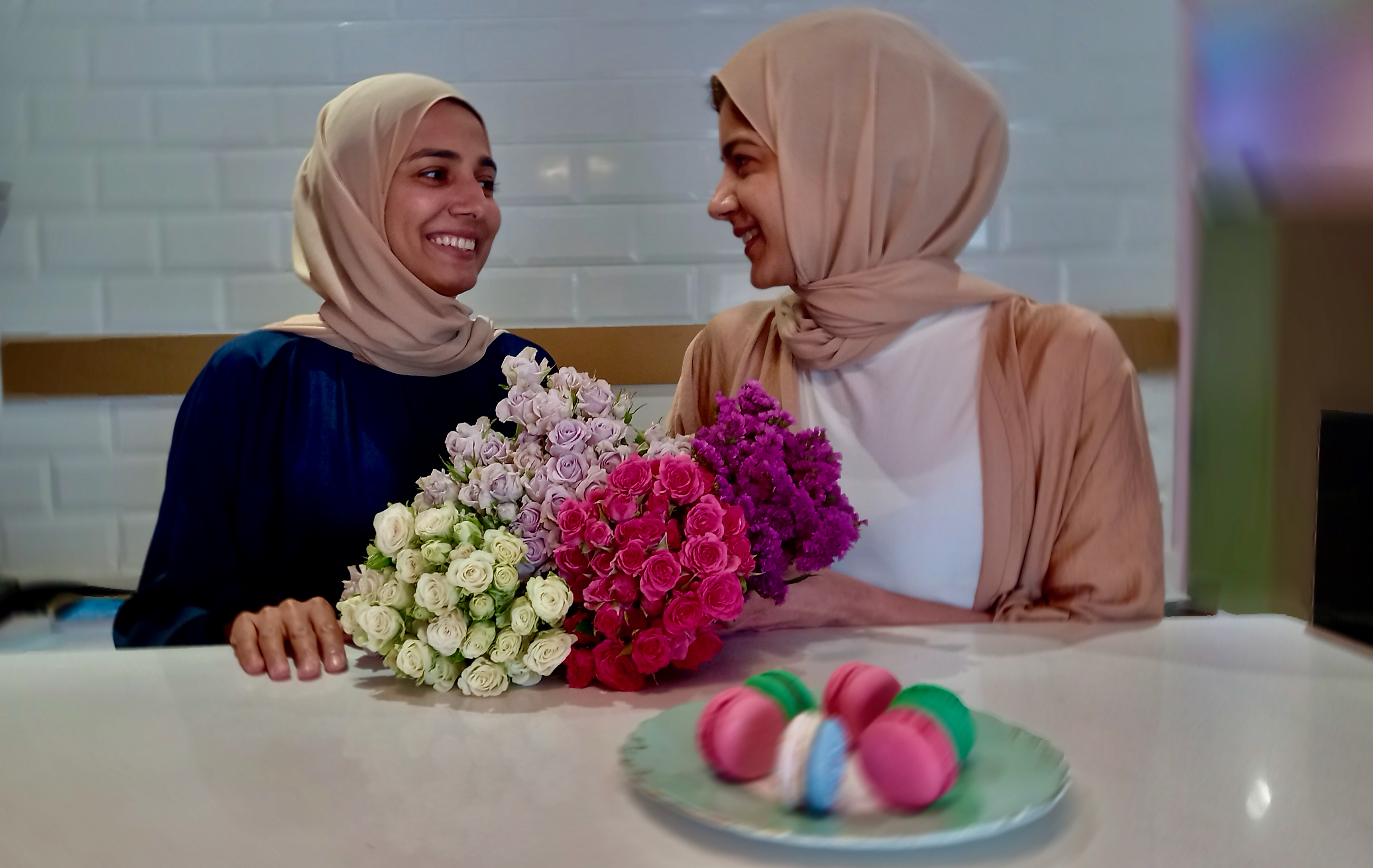
Rosebuds for decorating and macarons for devouring plus the chilli and the chocolate chef. (Photo: Wanda Hennig)
The name Chilli Chocolate, says Faatimah, was initially inspired by the Lindt chilli chocolate bars, new when they were looking for a name. They thought they might change it. But it grew on them, says Zainab, who tells me she is more chilli, “somebody’s got to be bossy”, and Faatimah is more chocolate. Sweeter. And with more of an inclination to make the cakes, the pastries, the desserts.
Thinking about food in the religious context, inspired by the Paruk sisters, my mind turned to my Catholic boarding school days. Fish on Fridays we had. Other than that, I recall sinewy liver, breakfast oats with weevils, dishwater soup you were meant to finish so you did your best, each formica table-for-four, to empty one soup plate then stack the others underneath with spoons protruding, hoping the evidence wouldn’t spill out before the little stacks had been carried back to the kitchen.
I think our cooks were doing it on a wing and a prayer. Could have used some spiritual guidelines, out of a bottle, even, given the Mass wine. Or lessons, come to think of it, in extreme Kenyan cooking from my former flatmate Paul could have revved things up. Or for Sister Liguori, slaving and sweating in the kitchen in what looked like purgatory if not hell on earth, some divine intervention may have helped. DM/TGIFood
Visit the Chilli Chocolate Chefs website. Follow them on Facebook and on Instagram.
Follow Wanda Hennig on Instagram wanda_hennig





 Become an Insider
Become an Insider
Comments - Please login in order to comment.